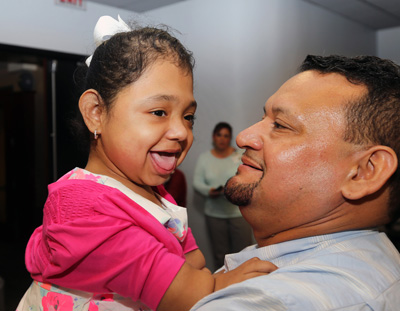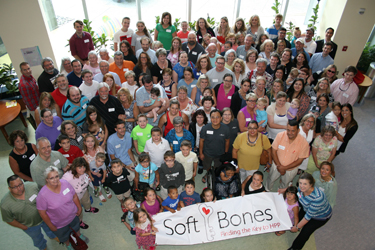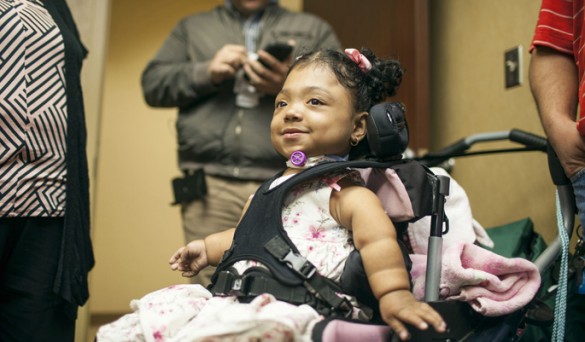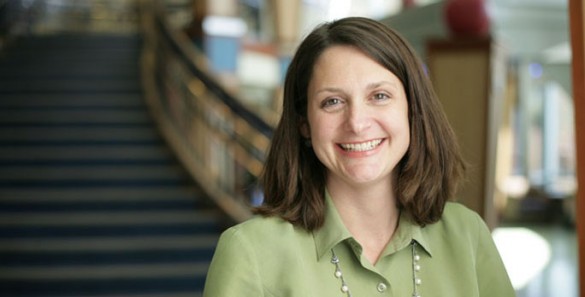Janelly Martinez-Amador grabbed headlines and hearts around the world three years ago when news spread of her remarkable fight for survival against a rare metabolic disease at Monroe Carell Jr. Children’s Hospital at Vanderbilt.

Born with a genetic disorder called hypophosphatasia (HPP), a metabolic disease that affects the development of bone and teeth, Janelly’s body was unable to make bone. An enzyme deficiency causes the bones to become soft because they can’t absorb important minerals such as calcium and phosphorus, increasing the risks for pain, broken bones and bone deterioration.
Her story was also filmed for a documentary for BBC, called “9 Months That Made You: The Final Countdown.” The documentary recently re-aired on PBS on July 13, and can be seen for a limited time online at http://www.pbs.-org/video/2365780257. The segment of her story begins at 1 minute 24 second mark and ends at 10:38.
In the film, Janelly’s parents, Salvador Martinez and Janet Amador, along with her Children’s Hospital endocrinologist, Jill Simmons, M.D., detail how her participation in a clinical drug trial gave her hope, as well as other families, and allowed Janelly’s body to regenerate bones.
“Janelly’s family took a risk when they entered this clinical trial. She was the third infant enrolled, and there was nothing known at that time about side effects or whether the medication would help her at all,” said Simmons, associate professor of Pediatrics. “She had to spend two weeks in the PICU at the beginning of the trial to be certain that she did not have any severe reactions.
“She and her family then underwent seemingly countless study visits with full skeletal films and blood draws during the seven years she was a part of this trial. However, it certainly paid off, both for her and for patients around the world. This life-saving medication was approved by the FDA in October 2015, and patients with all forms of childhood-onset HPP can now receive it,” Simmons said.
Janelly, now 10, has served as an inspiration for children and adults worldwide suffering from different forms of HPP, and her story created an awareness about the expertise and comprehensive care that pediatric and adult physicians at Vanderbilt University Medical Center and Children’s Hospital are able to provide for the disorder.

Recently, the Program for Metabolic Bone Disease, led by Simmons and Kathryn Dahir, M.D., hosted the national Soft Bones conference, an organization dedicated to HPP, at Children’s Hospital.
Simmons said conference participants were grateful for Janelly and the other patients who participated in the trial to offer hope for others. The day before the conference, Simmons and Dahir held a clinic for attendees, who traveled from all over the country. Many of those people had never met another person with HPP.
“Even adult patients who have learned to live with chronic pain, difficulty with mobility and frequent and non-healing fractures are now benefitting from the medication. This story being picked up by PBS has also served to impact other patients,” Simmons said.
“On the morning after it aired, I received an email from a mother in North Carolina who watched the show with tears in her eyes. She had no idea that there was a medication that could help her family, many of whom have suffered pain and fractures for years. That family is now planning a trip to Nashville to receive care.”















